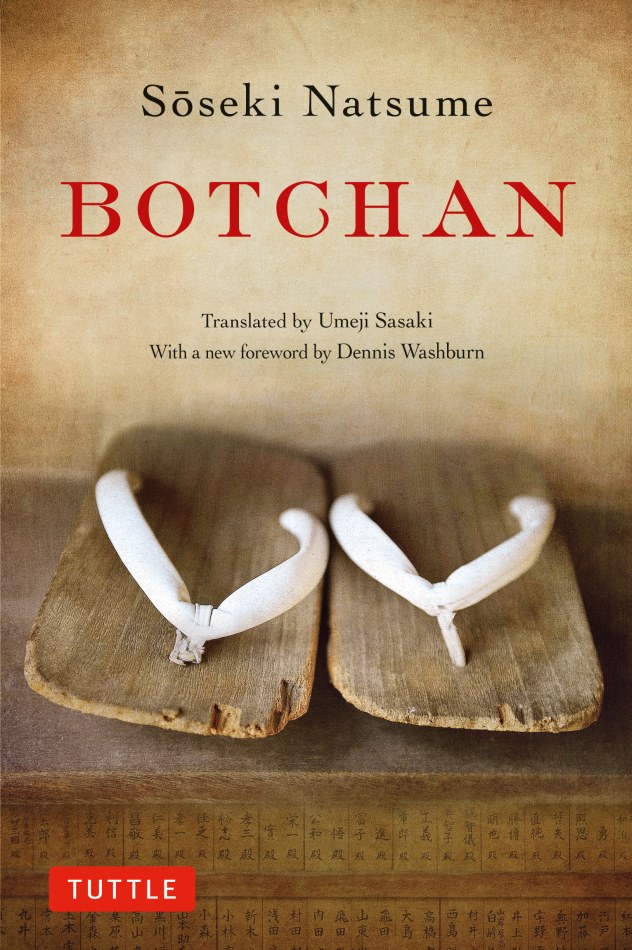Botchan by Soseki Natsume is probably the most widely read novel in Japan and the author is one of Japan’s most beloved authors. While their American counterparts are acquainted with the Adventures of Huckleberry Finn and Catcher in the Rye, Japanese students are required to read about Botchan’s quest to navigate his society’s hypocrisies while adhering to what he believes is honest. There are a few English translations of this novel and the one I read is translated by Umeji Sasaki.
Botchan (坊っちゃん) central theme is morality, but the narrator serves up this theme with generous sides of humor and sarcasm. It is a coming-of-age story ripe with sarcasm and entertaining to read.
Botchan is the youngest son in a middle class Tokyo family. His elder brother is the obvious favorite of both parents and Botchan grows up demanding attention for himself—and succeeding only through a series of misdeeds. Following the early death of his mother, the servant Kiyo provides him with the only love and understanding he knows. When his father dies, Botchan’s brother gives him a small portion of the inheritance and disclaims any further responsibility for the boy.
Botchan vacillates between setting up a business and getting an education, and eventually uses this money to study physics for three years. On graduating, he accepts a teaching post at a rural middle school in Matsuyama on the island of Shikoku.
Botchan’s tenure as a Mathematics teacher in Matsuyama turns out to be short (less than two months) but eventful. In this conservative world, with its social proprieties and established pecking order, Botchan soon finds himself on a collision course with the locals with his big city attitude, quick temper, arrogance and lack of respect for either his elders or his noisy young charges. He comes face to face with treachery, hypocrisy and the complexities of human nature. True to his defiant nature, he gives nicknames to his colleagues
It would be easy for a modern non-Japanese reader to lose patience with the novel’s slow plot, or to become annoyed with the main character’s simplicity and apparent lack of insight. Just bear in mind that this novel was penned more than a century ago in 1906.
 CY@CY Says Welcome to my dreamscape. Where a Lim is also a Ling.
CY@CY Says Welcome to my dreamscape. Where a Lim is also a Ling.
